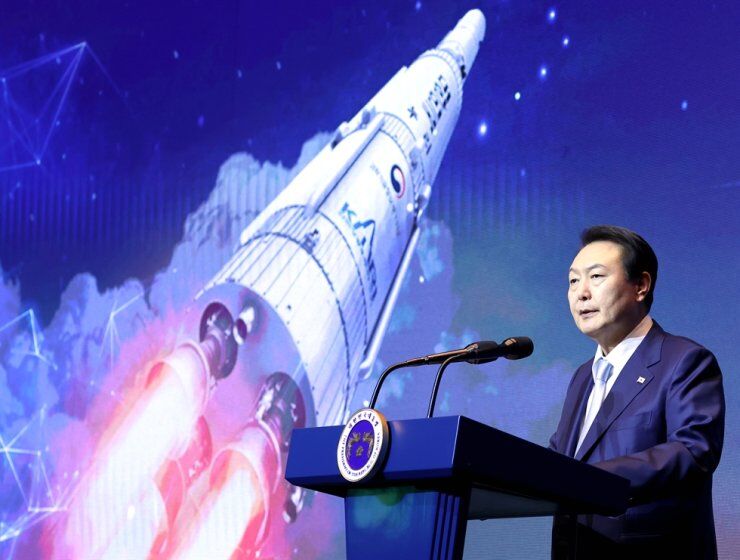
Ibadan, 29 November 2022. – South Korea has announced its intentions to launch a mission to Mars before 2046 through its new space mission roadmap, which President Yoon Suk-yeol unveiled. The roadmap also discloses Korea’s intentions to develop an engine for a launch vehicle that can fly to the Moon within the next five years. Korea intends to have its spacecraft land on the Moon, begin mining lunar resources in 2032, and then land on Mars in 2045, when the country celebrates its 100th anniversary of independence from Japanese colonial occupation.
Speaking on the roadmap, the President remarked, “by 2045, we will be able to plant our national flag on Mars. To make this happen, we will develop unimaginable technologies and explore uncharted areas.”
To realize this goal, South Korea has established policy goals to aid the exploration missions to the Moon and Mars, develop space technology and related industries, train experts, bolster national security through space and lead international cooperation for space programs. President Yoon Suk-yeol will also chair the national space committee and establish the Korea Aerospace Administration (KASA).
According to the Korea Times, the Korean Ministry of Science and ICT has launched a team dedicated to setting up KASA and begun drawing up specific missions that the administration should pursue and strategies for launch vehicles, satellite technologies, space resources development, and other goals. Following the team’s launch, the Korean Government will table a special Act in the first quarter of 2023 calling for establishing KASA. If the Nation’s National Assembly passes the bill in the second quarter, the administration will begin operations within that year.
Speaking on this, the President noted, “we will double our space-related budget within the next five years and attract at least 100 trillion won (USD 74.7 billion) of investments.” “We will transfer space technologies owned by public agencies to the private sector and organize a funding program to develop world-leading private space companies,” he added.


